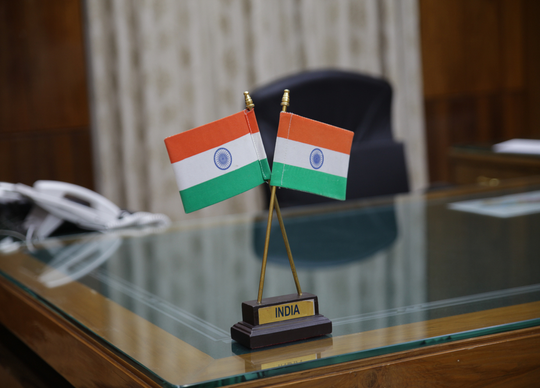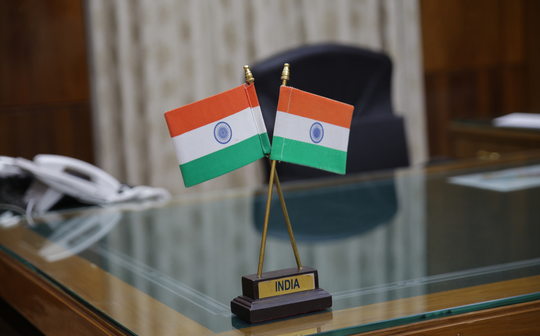
By Sarosh Bana, Mumbai Correspondent
To the relief of the general public, India’s Supreme Court (SC) came down heavily on the Narendra Modi government on the Pegasus snooping controversy, forcing its assent to an impartial inquiry into its role in this sordid issue.
A bench of Chief Justice of India (CJI), N.V. Ramana, and Justices Surya Kant and Hima Kohli on 27 October directed the setting up of a three-member expert committee, led by former SC judge R.V. Raveendran, to investigate the allegations of targeted surveillance of politicians, journalists, activists and dissidents through the use of the Israeli Pegasus software. The petitioners included these individuals, as also the Editors Guild of India.
As in other similar cases, India’s increasingly authoritarian government urged the Court against “interfering” in the issue as national security was involved. The bench brushed aside its contention, maintaining that though the government may decline to provide information when constitutional considerations exist, such as those pertaining to the country’s security, this did not mean “… the State gets a free pass every time the spectre of ‘national security’ is raised”.
Turning down the government’s offer to hold its own inquiry, the apex court observed that the question of surveillance concerned not only the privacy of individuals, but also freedom of the press. Its significant ruling noted, “Such a chilling effect on the freedom of speech is an assault on the vital watchdog role of the press, which may undermine the ability of the press to provide accurate and reliable information.”
Holding that a “prima facie case” was made out for an investigation in light of the government’s “omnibus and vague denial”, the judgment, authored by the CJI, noted: “It is a settled position of law that in matters pertaining to national security, the scope of judicial review is limited. However… national security cannot be the bugbear that the judiciary shies away from, by virtue of its mere mentioning. Although this court should be circumspect in encroaching upon the domain of national security, no omnibus prohibition can be called for against judicial review. The mere invocation of national security by the State does not render the court a mute spectator.”
It added, “Protection of journalistic sources is one of the basic conditions for the freedom of the press. Without such protection, sources may be deterred from assisting the press in informing the public on matters of public interest.”
Parliament had been convulsed in July when incensed Opposition MPs reacted to worldwide reports on government use of an Israeli spyware to cybersnoop on select citizens, who included certain Parliamentarians, even two ministers, journalists, activists and other public figures disenchanted with the leadership.
Then newly-inducted IT minister Ashwini Vaishnaw downplayed the issue when he himself was one of those targeted, even as the Opposition cried “treason” and demanded a judicial or Parliamentary inquiry into the “role” of Prime Minister Modi in the matter as also the dismissal of his confidant, Home Minister Amit Shah.
The leaked global database of 50,000 telephone numbers was first accessed by French non-profit Forbidden Stories and Amnesty International, essentially revisiting a global scandal that first emerged in 2019. They shared their information with 16 “media partners”, including Washington Post, Le Monde, Die Zeit, the Guardian and Indian news website The Wire, which then published the reports of military-grade spyware from Israeli NSO Technologies Group’s Pegasus company aiding 45 governments across the world, including India, to successfully hack the smartphones of thousands of citizens for tracking their activities in real time.
“Our effort is to uphold the constitutional aspirations and rule of law, without allowing ourselves to be consumed in the political rhetoric…However…it [this court]has never cowered from protecting all from the abuses of fundamental rights,” the bench said in its interim order. “We live in the era of information revolution, where the entire lives of individuals are stored in the cloud or in a digital dossier….while technology is a useful tool…it can also be used to breach that sacred private space of an individual.”
Since coming to power in 2014, the right-wing Bharatiya Janata Party (BJP)-led government has striven to bring India’s entire population under surveillance. In 2016 it introduced the personal data gathering medium called aadhaar that has enrolled almost the entire population of 1.35 billion, making aadhaar the world’s largest biometric database.
While this national identification platform was originally conceived as a means to provide efficient access to government welfare schemes meant largely for the underprivileged, the BJP government made it mandatory for accessing a host of services like opening and operating bank accounts, filing Income-Tax returns, and for applying for cellphone services, passports, driving licences, house subsidy, school admissions, death certificates, train tickets, and even for supplementary meals at crèches and maternity benefits.
In 2018, the Ministry of Home Affairs (MHA) designated 10 agencies to intercept information “when required in national interest”. The notification evoked the Information and Technology (Amendment) Act, 2008, as well as the Information Technology (Procedure and Safeguards for Interception, Monitoring and Decryption of Information) Rules, 2009, which permitted the interception, monitoring or decryption of any information generated, transmitted, received or stored in any computer resource. The government held that right to privacy could not override the need for gathering information for the cause of national interest and security.
This move too was challenged in court, where the petitioners contended that while national security was indeed critical and paramount to any society, one should be circumspect about the government’s keenness to attribute its invasive surveillance practices to the cause of national security.
As always in such instances, the government argued, “Grave threats to the country from terrorism, radicalisation, cross-border terrorism, cybercrime, organised crime, drug cartels cannot be understated or ignored and a strong and robust mechanism for timely and speedy collection of actionable intelligence, including signal intelligence, is imperative to counter threats to national security.”
The petitioners countered, however, that if terrorists were to be monitored, it did not stand to reason that the average citizen should be too, adding that there were adequate means available to the government to safeguard national security rather than by bringing the entire population under pervasive surveillance.






